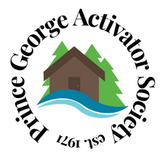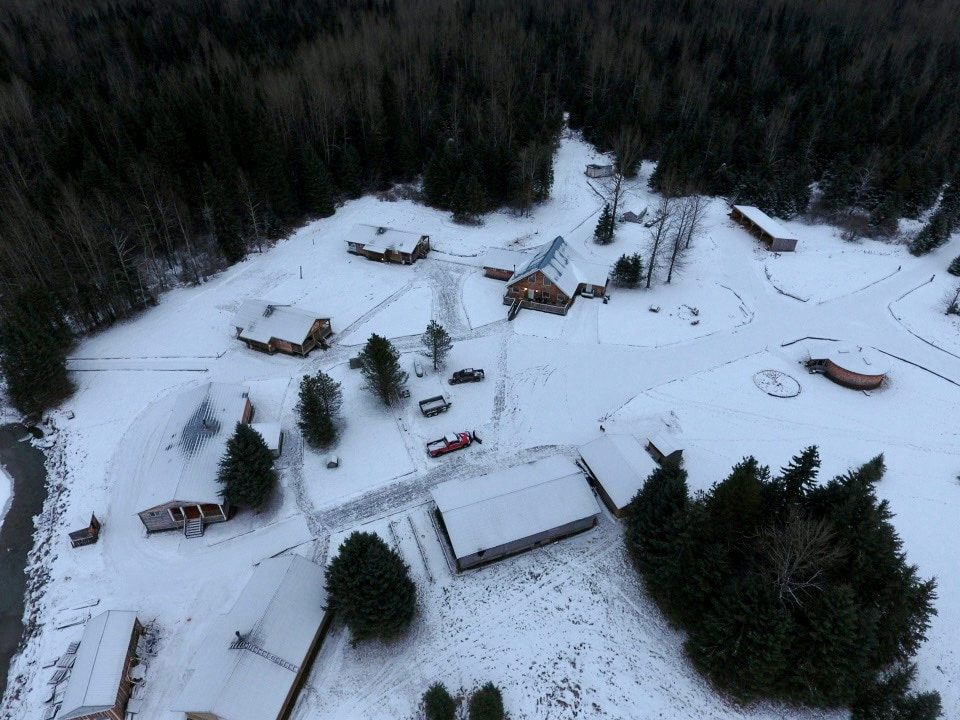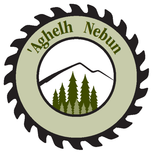'Aghelh Nebun
'Aghelh Nebun CRF is a community residential facility located 85 km east of Prince George. ‘Aghelh Nebun CRF offers potential residents, both Indigenous and non-Indigenous, a remote, holistic, and land-based healing environment structured around Indigenous philosophies of health and well-being. While at camp, residents have the opportunity to develop spiritually, physically, emotionally and mentally through CSC’s programs as well as ANC programs by addressing substance abuse issues, employment training deficits, education, community functioning, life skills, and personal and emotional issues. The facility provides basic amenities and all meals to the residents of the camp. Accommodations are in separate buildings and residents have their own rooms. The facility is staffed 24 hours a day; the premises are always supervised by at least one staff member and off duty staff reside at the camp as well. There are always at least two staff on site. Additional staff include a Camp Supervisor, local Indigenous Elders, an in-house mental health counselor, and support staff from our Activators CRF including an Enhanced Supervision Worker. CSC staff visiting the site on a weekly basis include a community Parole Officer, Program Officer and the Indigenous Community Liaison Officer .
This level of monitoring and support provides the structure necessary to supervise the offender while at camp. All residents are required to abide by and follow all conditions and rules set out by the conditions of their release, the CRF, and their Parole Officer. All residents are expected to follow the plan set out in their Community Strategy and the PBC Decision as well as the Resident Healing Plan established at ‘Aghelh Nebun CRF.
'Aghelh Nebun
'Aghelh Nebun CRF is a community residential facility located 85 km east of Prince George. ‘Aghelh Nebun CRF offers potential residents, both Indigenous and non-Indigenous, a remote, holistic, and land-based healing environment structured around Indigenous philosophies of health and well-being. While at camp, residents have the opportunity to develop spiritually, physically, emotionally and mentally through CSC’s programs as well as ANC programs by addressing substance abuse issues, employment training deficits, education, community functioning, life skills, and personal and emotional issues. The facility provides basic amenities and all meals to the residents of the camp. Accommodations are in separate buildings and residents have their own rooms. The facility is staffed 24 hours a day; the premises are always supervised by at least one staff member and off duty staff reside at the camp as well. There are always at least two staff on site. Additional staff include a Camp Supervisor, local Indigenous Elders, an in-house mental health counselor, and support staff from our Activators CRF including an Enhanced Supervision Worker. CSC staff visiting the site on a weekly basis include a community Parole Officer, Program Officer and the Indigenous Community Liaison Officer .
This level of monitoring and support provides the structure necessary to supervise the offender while at camp. All residents are required to abide by and follow all conditions and rules set out by the conditions of their release, the CRF, and their Parole Officer. All residents are expected to follow the plan set out in their Community Strategy and the PBC Decision as well as the Resident Healing Plan established at ‘Aghelh Nebun CRF.
Weekly Schedule
'Aghelh Nebun provides offenders with a slow and structured release. Residents are expected to participate in all aspects of camp from the employment training courses, to the cultural aspects and work days. Each week is generally the same and this allows residents to get into a routine and prepares residents for gradual reintegration into the community.
|
Mondays
Talking Circle TARP Program One-on-one Counselling Sessions |
Tuesday
Employment Course |
Wednesday
Talking Circle Parole Officers, & CSC Staff in camp |
Thursday
Employment Course |
Friday
Work Day |
Saturday
Free Day |
Sunday
Sweat Lodge Ceremony |
Talking Circles: Begin at 9am; Our spiritual advisor and Elder drive out for talking circle. Sharing in the circle is not mandatory if a resident does not feel comfortable, however, all residents are expected to participate and support the circle.
Employment Courses: Begin at 9am - If a resident is late, they risk loosing out on the ticket(s) for that day. Residents are given short breaks during the day as well as a lunch break.
Parole Officers & CSC Staff: Every Wednesday Parole Officers are in camp to do FOC's. The ICLO also attends camp to help residents with status cards, birth certificates etc. A Programs Officer from CSC also facilities programs on Wednesdays.
Work Day: Begins at 9am - If a resident is late, they risk not being paid for the day. All residents are expected to arrive to work in the proper work gear ready to head out to the bush. Residents are paid for 5 hours of work and get paid bi-weekly.
Sweat Lodge Ceremony: Our spiritual advisor runs a Sweatlodge ceremony bi-weekly. All residents are expected to participate in some way such as helping with the fire, helping with the door, or going into the sweat.
Employment Courses: Begin at 9am - If a resident is late, they risk loosing out on the ticket(s) for that day. Residents are given short breaks during the day as well as a lunch break.
Parole Officers & CSC Staff: Every Wednesday Parole Officers are in camp to do FOC's. The ICLO also attends camp to help residents with status cards, birth certificates etc. A Programs Officer from CSC also facilities programs on Wednesdays.
Work Day: Begins at 9am - If a resident is late, they risk not being paid for the day. All residents are expected to arrive to work in the proper work gear ready to head out to the bush. Residents are paid for 5 hours of work and get paid bi-weekly.
Sweat Lodge Ceremony: Our spiritual advisor runs a Sweatlodge ceremony bi-weekly. All residents are expected to participate in some way such as helping with the fire, helping with the door, or going into the sweat.
Proudly powered by Weebly


